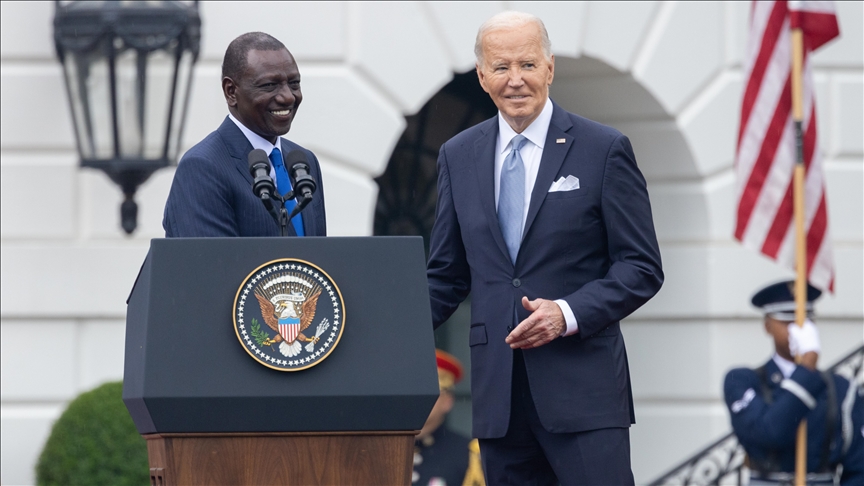Published
12 months agoon
By
Ugdiplomat
On Monday, U.S. President Joe Biden designated Kenya as a “major non-NATO ally,” marking it the first sub-Saharan African nation to receive this status.
“By the authority vested in me as President by the Constitution and the laws of the United States of America, including section 517 of the Foreign Assistance Act of 1961, as amended (22 U.S.C. 2321k) (the “Act”), I hereby designate Kenya as a Major Non-NATO Ally of the United States for the purposes of the Act and the Arms Export Control Act,” stated a White House memorandum.
Biden initially announced the decision in May during a state visit with Kenyan President William Ruto at the White House, celebrating six decades of bilateral relations.
This move comes as Washington aims to counter the increasing influence of Russia and China in the region in Africa.
Biden highlighted Nairobi’s cooperation with U.S. national security priorities, including efforts to defeat Daesh/ISIS and al-Shabab in East Africa, what he termed as “mutual support” for Ukraine, and ongoing efforts to deploy a Kenyan security force in the crisis-stricken Caribbean nation of Haiti.
Other major non-NATO allies include Argentina, Australia, Bahrain, Brazil, Colombia, Egypt, Israel, Japan, Jordan, Kuwait, Morocco, New Zealand, Pakistan, the Philippines, Qatar, South Korea, Thailand, and Tunisia. Taiwan is treated as a major non-NATO ally without the formal designation.
Strategic and Security Benefits:
Economic and Diplomatic Impact:
Maritime Security and Economic Implications:
Regional Security Dynamics:
Economic Integration and Cooperation:
Security and Stability:
Geopolitical Influence:
Maritime Influence in Africa:
Countering Russian and Chinese Presence: Kenya’s MNNA status with its strategic coastline is seen by many as US counterbalance to the growing Russian and Chinese maritime presence in Africa. Both nations have been increasing their influence through port investments and military bases, such as China’s base in Djibouti.
The designation of Kenya as a major non-NATO ally by the United States marks a significant milestone with far-reaching implications. For Kenya, it promises enhanced military capabilities, economic opportunities, and diplomatic prestige. Within the East African Community, it positions Kenya as a security leader and economic hub, potentially benefiting the entire region. On the broader African continent, this move could enhance the African Union’s peacekeeping and counterterrorism efforts while prompting a strategic realignment among member states.


ANALYSIS: Why Brenda Kiconco Is Most Likely To Clinch NRM Youth League Post


BREAKING: Generals Bakasumba, Kinalwa Elevated in Latest Promotions


Museveni to Pick NRM Nomination Forms on Saturday for 2026 Flag Bearer, Party Chair


Uganda Condemns Israeli Strikes on Iran, Urges Diplomacy and Dialogue


BREAKING: CDF Gen Muhoozi, Tshisekedi Ink MoU To Extend Operation Shujaa Mandate


Putin Touts BRICS as Engine of Global Transformation
